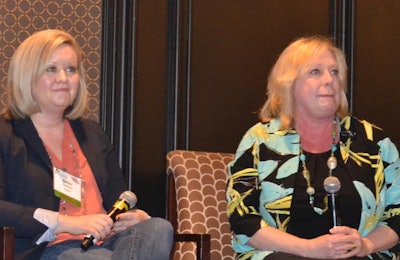
While dietitians should be viewed as trusted sources on how to best incorporate meat and poultry into a healthy diet, some have a tendency to ignore sound science, attendees of the Animal Agriculture Alliance Stakeholders Summit were told on May 3.
Leah McGrath, corporate supermarket dietitian for Ingles Markets, and Amber Pankonin, a nutrition and agriculture communications consultant and adjunct professor at the University of Nebraska – Lincoln, have both learned that even though they take sound science and a knowledge of animal production practices in account when making dietary recommendations, there are plenty of others who do not.
In fact, Pankonin said she believes that some people who enter the dietitian field do so for the wrong reasons. It not only happens at colleges and universities that don’t have strong agriculture programs, but also at those that do.
“For me, even at the University of Nebraska, we have students that come in because they want to be activists. That’s a real danger when you are a professional, because there’s a fine line between professionalism and activism, and you have to learn the difference,” said Pankonin.
At the beginning of each semester, Pankonin asks her students how many of them grew up on a farm or have an agricultural background. As many as half of them do. From there, the students can help educate one another.
McGrath has made a practice about visiting with farmers and applying her knowledge gained from those consultations to her work. It’s something she wishes all dietitians did.
“There’s a lot of education that still needs to happen,” said McGrath. “You wouldn’t recommend every plumber. You wouldn’t recommend every dentist. I wouldn’t recommend every dietitian.”

















